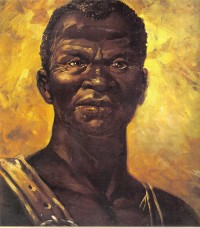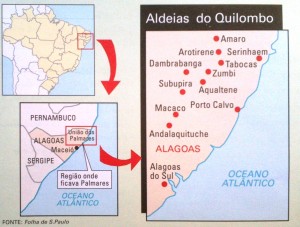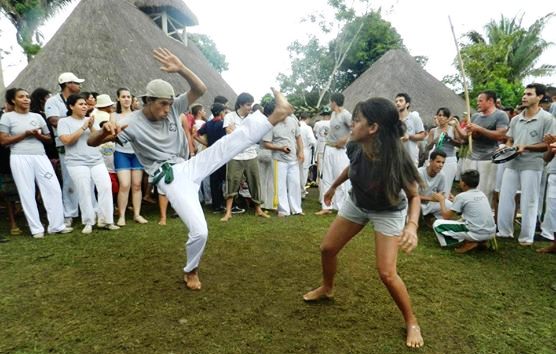Black Awareness Day is celebrated on 20th of November in Brazil. It is dedicated to the fight against the black slavery. Looking for the icon to reverence, black movement in Brazil has chosen “Zumbi dos Palmares” – one of the leaders of the black resistance, the hero from XVII century different from US where contemporary icons like Martin Luther King were chosen. 20th of November was adapted from the date of his death in 1695. He was the last king of Quilombo dos Palmares – the biggest quilombo (settlement of the escaped slaves) of the colonial time. It was a community of several quilombos forming the kingdom, which was located in the region corresponding today to a part of states Alagoas and Pernambuco. It had a strategically good location – remote, up on the hill, hard to reach even nowadays. The population of this quilombo reached 20 thousands residents – 20% of population of Pernambuco those days.
The life in quilombos was organized in the same way it was in some African states. This way the top of social pyramid was occupied by the king, selected collectively. The big sense of discipline and hierarchy was practiced there. Every member lived from own work. It was the tough life but the life in freedom.
Portuguese colonizers tried to destroy Quilombo Dos Palmares without any success for a long period of time. Residents repulsed 58 attacks till 1965 when with the help of military forces from São Paulo the Quilombo dos Palmares was taken and almost all the people were killed together with the king Zumbi. Without his leadership quilombo lost its power and was destroyed completely in 1710.
Alagoanos are very proud of its state´s hero. The Airport of Maceió, capital of Alagoas, received the name of Zumbi, various events through the state are using his name as a reference to the resistance, fight, freedom and equal rights. Every year on 20th of November the big event takes place in the Serra da Barriga – place of birth of Zumbi. Various cultural groups, Candomblé (african religion), and of course Capoeira groups are doing the exhausting walk for 2 hours to reach Serra da Barriga and celebrate its date in its own way.
Capoeira has a strong connection to Zumbi as a marital art which was developed by African slaves to fight against the enslavers. It is an honour to any Capoeirista in the world to do this “piligrimage” to Serra da Barriga. There is probably no other Capoeira event where so many different groups and styles are presented together. Every group makes own roda (traditional Capoeira circle where all practitioners play music, sing and practice Capoeira) and participates in rodas of other groups. Capoeiristas, who has ever been there, claim that the rodas on Serra da Barriga have very special Axé (Yoruba word for energy). Probably the energy from old generations…


